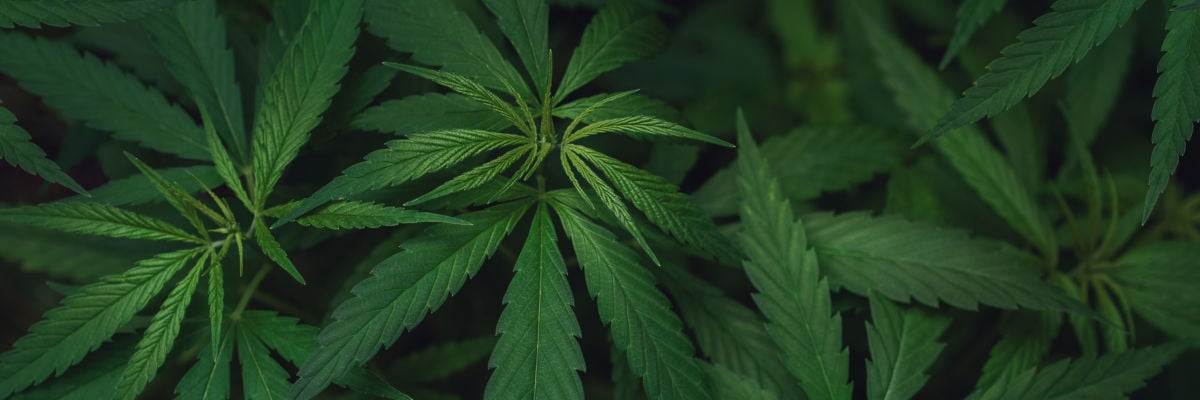
Jimmy Akin lays out the Catholic Church’s position on when medical use of marijuana and other mind-altering substances is appropriate, and explains the principles behind the Church’s general opposition to marijuana’s recreational use.
Transcript:
Host: We go now to Jim in Brighton, Michigan, listening on Ave Maria Radio. Jim, you’re on with Jimmy Akin.
Caller: Hey, thanks for taking my call. I have not heard a whole lot—we’re in Michigan, and I assume it’s gonna be on the ballot here about legalization of marijuana—but also the medical marijuana exists here in our state, and I don’t see a lot of response or any kind of, well, opinion from the Church—maybe they’re not putting it out yet, but is there a position at this point from the Catholic Church yet on these two areas?
Jimmy: On medical marijuana and recreational marijuana, and should they be allowed legally?
Caller: Well, I should say, does the Church have a position on them? For example, if I was a patient that had some type of illness where my doctor said, “You should be consuming marijuana,” is that acceptable within the Church?
Jimmy: Okay. Well, so, assuming that your doctor is right, yeah. I mean, now, in assessing that somebody should be pursuing a particular course of treatment, there need to be several facts that are verified: number one, that there’s a genuine condition, medical condition that the person has; number two, that this treatment will effectively address it; number three, that there aren’t better alternatives, such as alternatives that are more effective or less expensive or have fewer side effects.
But assuming that those conditions are fulfilled, then…the medical advice is sound, and the Church doesn’t have a problem with sound medical advice. Now there’s a question, when it comes to marijuana, about–well, how effective is it, and what conditions might it be appropriate for? It is obviously a substance that affects the way your mind works, but there are lots of substances that do that; I mean, morphine does that, and doctors give patients morphine all the time, because it’s a pain reliever and there are conditions in which you need serious pain relief. And so morphine has some side effects, but there are situations where it’s appropriate to use morphine; and in the same way, hypothetically, there could be situations where the medical use of marijuana is appropriate.
However, because the medical marijuana movement in this country has been part of a broader movement towards pushing for its recreational use, there’s some question about, well, how effective is it, really? Is this just a cover for recreational use? And that’s something that is—whether there are legitimate uses for it medically—is an empirical question. And it’s one that, I’m not a doctor, I haven’t studied the evidence, I can’t give you an opinion on that. I can sketch out the principles that are involved in when use of a treatment, including a narcotic, is appropriate; but then there are appropriate situations, medically, for the use of narcotics—like morphine, to mention just one.
In terms of recreational use, the problem there is that…when people use marijuana or alcohol or anything in a way that deprives them of their ability to make moral decisions, then they are—and they’re doing it just for fun, not because there’s a compelling reason, like “I need to have surgery,” but they’re doing it just for fun, and they’re depriving themselves of the capacity for moral reason—that’s something that, of itself, is sinful because it puts you in the proximate occasion of committing sins, potentially even grave sins; like when a person gets drunk on alcohol and goes out driving, okay. That would be an example. In terms of marijuana, I’m not aware of a specific position paper that’s been taken on this; however, the Church, in general, opposes the legalization of recreational use of narcotics. And so that’s the calculus that would likely be applied in this situation.
Now there can be situations where a law, even though it’s a good idea in principle, could be producing really bad effects in society; for example, when the United States tried to outlaw alcohol, you know, in almost all circumstances, during prohibition. That produced some really negative consequences, including the rise of organized crime. And so…now, the use of alcohol is not, in principle, problematic, as long as it’s used in moderation; but the United States experienced the problems of a law that a lot of people thought had a good moral justification, but it had really bad consequences and ended up getting repealed. So the question of legalization of recreational use of marijuana, or any other narcotic, is something the Church is going to be opposed to in principle; however, if there were really horrendous problems being caused by it, then there could be some discussion of that question.
Host: We’ll have to leave it there, Jim. I hope that was helpful.



